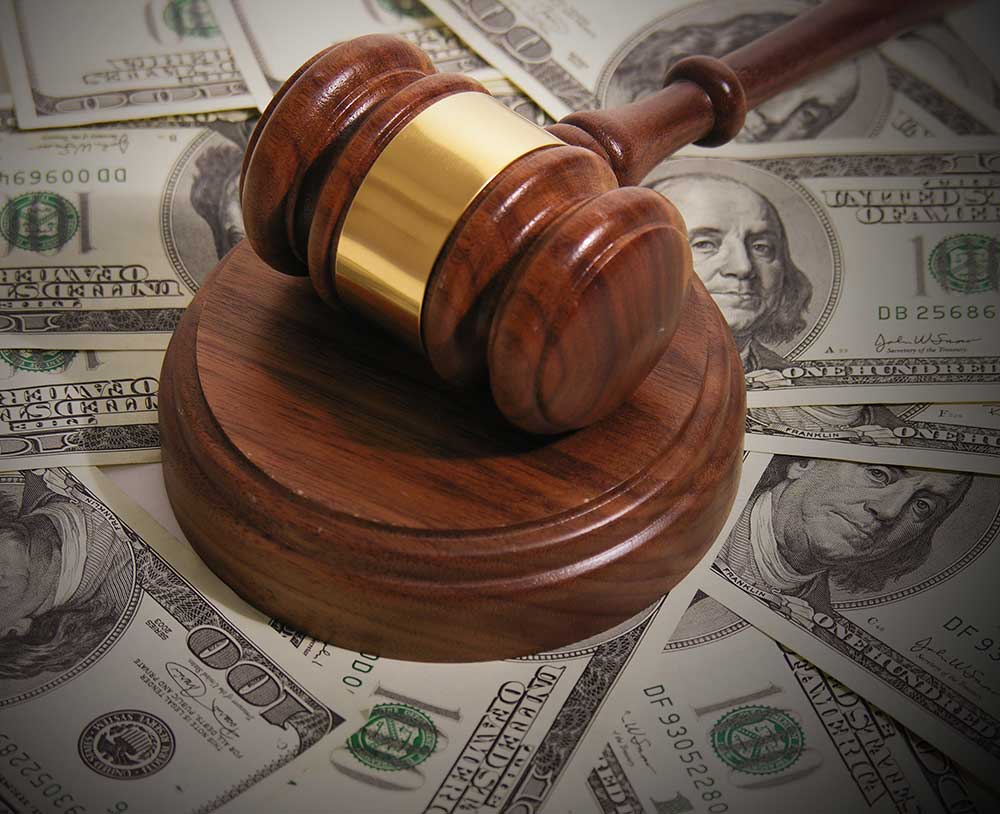What an Oklahoma Personal Injury Lawyer Can Do for You
Ylla | Gosney defends every Oklahoman that needs defending
If you’ve been injured in an accident and none of the liable parties are willing to help, you may have a personal injury claim on your hands.
You’ve got medical bills piling up, and none of the at fault parties want to take responsibility.
Between low-ball settlement offers and just plain ignoring you, it’s enough to feel defeated.
Whether it’s an insurance company, the property owners, or medical care providers, your case is winnable with the right legal experience.
Our Commitment to You
At Ylla | Gosney, we’re committed to getting you the financial compensation you deserve. With our legal team fighting for you, they’ll have to take notice. We prioritize maximum compensation through either settlement negotiations or a trial if necessary. The only way to win personal injury lawsuits is with effective legal representation.
In Oklahoma City, you will find no law firm more committed to your case and to you as a client. Our personal injury lawyers work on a contingency basis, meaning that our compensation doesn’t change no matter how long we provide legal assistance. Whatever your financial award, we take a percentage of that instead of billing by the hour and charging for every copy.
We go above and beyond that, though. We know that your monetary award may not cover every expense you’ve accrued or even reach the level of compensation you deserve. If that’s the case, we’re prepared to adjust our fee so you still come out ahead.
Whether you use our services or not, you have a right to know your options.
Reach out to us for a free, no obligation consultation.
You’ve still got questions and we have answers, so we’ve prepared this guide to fill in the blanks to address some common inquiries.
Facts About Personal Injury Cases
These cases can be one of fault (someone doing something that advertently or inadvertently resulted in the injury) and/or negligence (a failure to act or behave in a way that would have resulted in no injury). Personal injury victims have a legal recourse to pursue damages, usually with the help of a personal injury attorney.
10% of all deaths in the U.S. are a result of medical error.
For every 100 physicians, there are 68 liability claims filed.
Each year, over 3 million patients over the age of 65 are treated for injuries from a slip and fall.
Car accidents cost insurers and victims $473.2 billion.
For every 10,000 registered vehicles there is at least one death in auto accidents.
Within Oklahoma, one third of car accidents happen in Oklahoma City.
Regardless of what type of case you have, personal injury lawsuits are extremely prevalent. They also come with a huge amount of financial burden. In 2019, the economic cost of injuries was $4.2 trillion. With a number like that, can you really afford to just let the negligent parties ignore your case?
What is a Personal Injury Case?
There are many different types of personal injury cases, which are a type of civil lawsuit. Each one is different, but they all share the same foundation: someone got hurt and they think someone else is responsible.
Slip and Fall Injuries
Slip and Fall injuries are falls on public property, someone else’s property, or even at work. They can result in disastrous medical issues like traumatic brain, back, and nerve injuries. Victims can suffer all types of injuries in premises liability accidents.
Animal Attack
Whether it’s a dog bite or something more exotic, animal attacks occur frequently, especially against children. They cause punctured skin, broken bones, and even infections that lead to death.
Collision
Car, motorcycle, truck, bicycle, and pedestrian accidents occur at least once every minute. Chances are you’ve even been in one.
Wrongful Death
If any of these injuries lead to the victim’s death, the personal injury suit becomes a wrongful death suit. The beneficiary or estate can sue on behalf of the deceased and receive the financial compensation.
No matter the type of case you have, hiring a personal injury attorney is your best chance at negotiating with insurance companies. Schedule a free consultation.
Laws Regarding Personal Injury Cases
There are several legal nuances that could impact the outcome of your case. Some of them may impact your case’s timeline, award resolution, or even your ability to file a case.
Suffice it to say that there’s a great deal of legal variations, exceptions, and peculiarities that will come up during your case. Even out of court, your lawyer will file complaints, pleadings, and send settlement offers until they get you a settlement you accept.
Oklahoma’s statute of limitations for a personal injury case is two years from the date of the accident. In the case of wrongful death suits, it is then two years from the date of death, not the date of the accident.
Oklahoma enforces strict liability in certain cases, which is a standard of liability that assigns legal responsibility to a party even without fault. This doctrine assigns liability, even if they are not technically responsible. This is mostly enforced in these two types of cases:
- In the case of a dog bite, though the dog’s owner wasn’t the one who bit the victim, they are still responsible for the damages the dog bite caused.
- In the case of product liability, the product manufacturer, designer, or supplier is liable for the damages of the product’s injuries.
Negligence is the most common basis for personal injury cases. It is a way of attributing fault or blame even if the person responsible didn’t intend to cause harm. The at-fault party can demonstrate negligence through inaction or reckless behavior that resulted in the victim’s injury.
Oklahoma recognizes comparative negligence in regards to car accidents. This means that if a person is determined to be at-fault, their compensation can be diminished as a result of their level of fault. If they are more than 50% at-fault, they may not be able to seek compensation at all.
Even without a trial, your case’s resolution is determined by evidence. Personal injury cases are settled by awarding damages through a settlement and the amount of that settlement is decided by evidence. This is not evidence of the injury or the accident necessarily, but the financial ramifications of the accident.
Evidence like this can help reinforce your settlement demands and reject low-ball offers:
- Medical Expenses: The damage of the injury is always calculated by considering the amount of money you’ve spent on your medical care, and the estimated amount of what you’ll spend in the future. Insurance bills, medical care bills, pharmacy expenses, and even lab fees are all part of the damages of this injury.
- Lost wages: Time away from work or even unemployment caused by your injury are also vital to your eventual settlement. Keep a record of correspondence sent to your employer about your injury, along with copies of pay stubs, tax forms, and time clock data to demonstrate the injury’s deleterious effect on your employment status and ability to earn a wage.
Trials and Settlements
Trials can be expensive, unpredictable, and protracted. That’s why insurance companies would much rather settle with you out of court. This is conducted through settlement negotiations, usually done through your attorney.
Insurance adjusters’ job is entirely about getting you to accept the lowest possible settlement. This can involve a variety of tactics — reshaping the narrative, claiming prior injury, and even blaming the victim.
Out of court, these settlement negotiations are passed through attorneys and the victim gets the final say on each settlement offer. Once you accept it, that compensation gets paid out to the victim or to providers holding any outstanding debts on your behalf. In the case of wrongful death suits, the award is paid out to any beneficiaries.

Compensation Eligibility
Without a jury trial, cases are resolved through settlement because juries may result in unpredictable damage awards.
Determing Damages
Damages is the monetary estimation of your case. It involves economic factors (like lost wages and medical expenses) and non-economic factors (like loss of enjoyment and mental anguish).
Types of Damages
Damages can either be compensatory damages (which are meant to reimburse the plaintiff) and/or punitive damages (which are intended to punish the defendant). All of this culminates in your final award.
